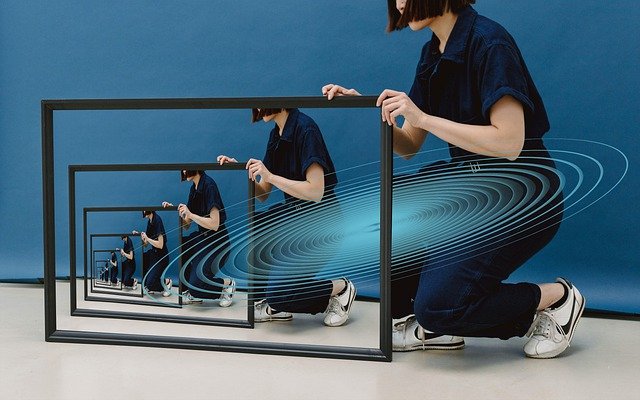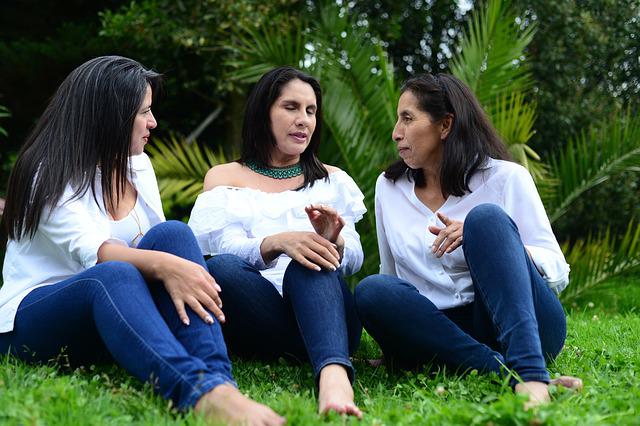In a number of forums, Ginny Whitelaw, author of Resonate: Zen and the Way of Making a Difference, expressed concern about society today and the global (dis)order. She attributes much of what is happening to an “extractive mindset” – extracting earth’s resources, taking for oneself at others’ expense, wasting needlessly, endangering the planet with pollution and failing to restore the endless damage that is occurring through relentless consumption. She suggests that underpinning this extraction mindset is acquisitiveness – greed driving the need to have more (money, food, status, power, influence, and/or land). Businesses extract resources from developing countries and do not replenish them while, at the same time, exploiting cheap local labour. There is an increasing desire for larger houses (with more in-built facilities) and cars with more room and power. People have lost the art of “knowing what enough is”. Facebook and other social media feed off and reinforce these acquisitive desires by rewarding the number of followers/likes you have and making you feel bad if you are not an “influencer’.
In her presentation as part of the Masters Series of EVO Sports Collective, Ginny addressed these issues and spoke of them as the “crucial work of our time”. She argued that these destructive trends have arisen because we have “dual consciousness” – separating mind from body and ourselves from others. Associated with this is the disconnection from nature and the failure to understand and appreciate our connectedness to everything and everyone.
Seeing ourselves as separate from nature and others, and viewing our mind as separate from our body (contrary to the experience of trauma), leads to a dualistic mindset that contributes to the disassociation and destruction of the current social order. Ginny argues that we need to “feel the earth and sense the waves” to restore our balance through renewing our relationship with nature. This sense of oneness with nature is cogently and emotively expressed by Lulu & Mischka in the video of their mantra meditation, Stillness in Motion.
A way forward to creating and realising a new social order
In her EVO presentation, Ginny argued that the adoption of non-dual consciousness and Perma-leadership represent the way forward to a sustainable social order. Connection with nature and its healing power can be one way to develop a non-dual consciousness and contribute to self-care in these uncertain and challenging times. Mindfulness practices such as loving-kindness meditation and reflection on our emotions (e.g. resentment) can build the sense of connectedness with others and heighten our empathy and compassion.
Ginny reinforces the view that effective leadership and change works from the inside out – from changing our energetic pattern to impact the world around us from a different “place of connection”. She refers to Kevin Cashman’s book, Leadership from the Inside Out, as a point of reference. Kevin, drawing on neuroscience research and the characteristics of high performing teams, points to the need for leaders to strengthen their awareness, be authentic, enhance their courage, build character, develop agility and make a contribution through service of others in pursuit of a life purpose that demonstrates their authenticity.
Ginny suggests that we need to “re-think, re-look and re-invent” to create the future we want – one that optimises outcomes for everyone, rather than maximises wealth for a few. To do this we have to become re-connected to nature, to our bodies and to others so that we can operate from a stable place, being grounded, and sure of who we are. People of like minds can create a “tipping point” – the Pandemic of Love, initiated by Shelly Tygielski, is an example of this. Ginny encourages us to “insert ourselves in what is going on” – just as Shelly Tygielski did from a rich lode of inner work and exploration of her inner landscape. As we develop new energetic levels through inner integration and alignment, we are able to act on the world in an authentic way and make a contribution that aligns with our life purpose. Ginny is a great believer in resonance as demonstrated in her Resonate book and the exercises she provides within it to help us centre our energy.
Perma-leadership as a way to engage
Ginny explains that the concept of Perma-leadership is based on the principles of permaculture – caring for people, the planet and the future. It develops from a deep mind-body connection and profound connection to others where, in line with indigenous wisdom, we recognise ourself in the other and the other in ourself (no separateness or duality). Perma-leadership is an iterative process involving both feed-forward and feedback – where an earlier step is repeated in the light of new insight. Ginny illustrates the stages in the cycle (from both individual and collective viewpoints) in a Forbes article titled, What Globalization Taught Leaders and What They Need to Learn Now.
The four steps in the iterative Perma-leadership cycle are:
- Connect and Remember – initially it may involve remembering something in nature that one loves and reconnecting with it, e.g. by becoming lost in its beauty, sounds or touch. This oneness with nature can build into oneness with others – feeling connected to others, not separate from them. Mind-body connection and connection to others deepen over time and provides the impetus for turning practice into action. Practices such as hara (lower abdomen) breathing and the music of chakras breathing can help to achieve this immersion and sense of connectedness. The latter process involving the chakras can be enhanced by employing three levels of activity for each chakra – (1) as you tone the sound for the chakra envisage the sound and breath reaching into the chakra, (2) expand the sound and breath out to the whole world and (3) tap into the depth of emotion experienced within the chakra (as illustrated in Ginny’s EVO Masters Series presentation at 1.20 – note access to this series and other resources are free for people who register with the EVO Sports Collective).
- Shift and Reimagine – here the focus is on a challenge, project or purpose that one wants to act on in a different way from what has been happening to date. It involves shifting our perspective on the endeavour and re-imagining it in the light of the permaculture principles mentioned above – caring for people, the planet and the future. It means working from a deep sense of connectedness and shifting our perspective and action to align with a desired future rather a depleted past. It may involve exploring “the ripple effect of your life” and choosing to change the effect you have.
- Energize and Inspire – this may involve developing a self-care plan incorporating wellness strategies to enhance our energy and using the resultant energy to show up for community care. We can seek inspiration from people like Shelly and energize ourselves by completing her online course, The Power of Showing Up (which I am pursuing at the moment). Part of this process is overcoming the self-messages such as “I am not good enough, know enough or skilled enough”. If we pursue our purpose with energy and authenticity we will create resonance in others and inspire them to participate and contribute from their own centredness (just as Shelly did with the Pandemic of Love).
- Create and Realize – this involves converting intention into action and manifests “attuned human beings, listening, adapting” to realize the future in the present. This requires having the insight to perceive present opportunities for personal contribution and building personal resilience and concerted action one step at a time in line with Permaculture Principles. The cyclic action involved in Perma-leadership also resonates with the principles of action learning.
Reflection
Ginny throws out a challenge to us to create and realize a new order, one intervention at a time – within our resources and in line with present opportunities. As we grow in mindfulness through mindful breathing and other mindfulness practices, we can gain the necessary insight, courage and resilience to make a contribution to realizing a better world within our local community and/or on a broader scale (through inspiring others and creating a “tipping point”).
__________________________________
Image by Gerd Altmann from Pixabay
By Ron Passfield – Copyright (Creative Commons license, Attribution–Non Commercial–No Derivatives)
Disclosure: If you purchase a product through this site, I may earn a commission which will help to pay for the site, the associated Meetup group, and the resources to support the blog.



